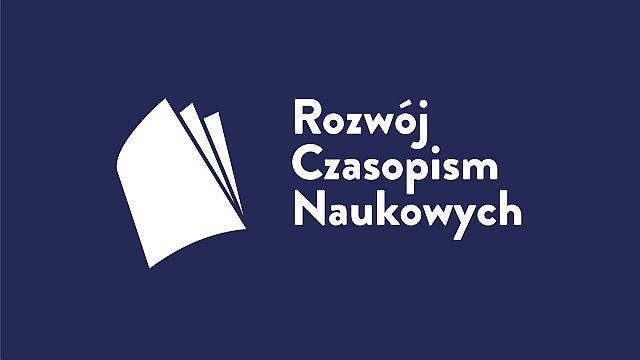Kultura migracji młodzieży, przejście młodzieży i styl życia: przypadek polskich i chińskich studentów międzynarodowych w Londynie
Abstrakt
Kultura migracji jest kluczowym tematem w badaniach migracyjnych, ale rzadko jest badana w kontekście międzynarodowej migracji studentów (ISM). Niniejszy artykuł, koncentrując się na dwóch reprezentatywnych grupach ISM: polskich i chińskich studentach międzynarodowych w Londynie, ma na celu zbadanie kultury migracji młodzieży. Korzystając z jakościowych, pogłębionych wywiadów, przeanalizowano naturę kultury migracyjnej tych studentów, obejmując takie aspekty jak przejście młodzieży i migracja stylu życia. Badanie ujawnia również heterogeniczność kultury migracji młodzieży. Niniejszy artykuł dostarcza wglądu w typy migrantów oraz bada przyczyny ich różnych postaw w ramach tej kultury.
Downloads
Bibliografia
Andrejuk K., Europeizacja w diasporze: studenci polscy na uczelniach w Londynie po 2004 roku, Wydawnictwo FIiS PAN, Warszawa 2013.
Beech S.E., Why place matters: imaginative geography and international student mobility, “Area” 2014, vol. 46, no. 2, pp. 170–177.
Benson M., O’Reilly K., Migration and the search for a better way of life: a critical exploration of lifestyle migration, “The Sociological Review” 2009, vol. 57, no. 4, pp. 608–625.
Collins F., Globalising higher education in and through urban spaces: Higher education projects, international student mobilities and trans-local connections in Seoul, “Asia Pacifi c Viewpoint” 2014, vol. 55, no. 2, pp. 242–257.
Eade J., Drinkwater S., Garapich M., Class and ethnicity – Polish migrants in London, University of Surrey, Guildford and Roehampton 2006.
Elrick T., The influence of migration on origin communities: Insights from Polish migrations to the West, “Europe-Asia Studies” 2008, vol. 60, no. 9, pp. 1503–1517.
Engbersen G., Snel E., Liquid migration: Dynamic and fluid patterns of post accession migration flows [in:] Mobility in transition: Migration patterns after EU enlargement, eds. B. Glorius, I. Grabowska-Lusińska, and A. Kuvik, Amsterdam University Press, Amsterdam 2013, pp. 21–40.
Favell A., Eurostars and Eurocities: Free Movement and Mobility in an Integrating Europe, Blackwell, Oxford 2008.
Findlay A.M., McCollum D., Coulter R., Gayle V., New Mobilities Across the Life Course: a Framework for Analysing Demographically Linked Drivers of Migration, “Population Space and Place” 2015, vol. 21, no. 4, pp. 390–402.
Horváth I., The culture of migration of rural Romanian youth, “Journal of Ethnic and Migration Studies” 2008, vol. 34, no. 5, pp. 771–786.
King R., Theorising new European youth mobilities, “Population, Space and Place” 2018, vol. 24, no. 1, pp. 1–12.
Krzaklewska E., Youth, mobility and generations – the meanings and impact of migration and mobility experiences on transitions to adulthood, “Studia Migracyjne – Przegląd Polonijny” 2019, t. 45, nr 1, pp. 41–59.
Massey D.S., Arango J., Hugo G., Kouaouci A., Pellegrino A., Taylor J.E., Theories of international migration: A review and appraisal, “Population and Development Review” 1993, vol. 19, no. 3, pp. 431–466.
McCollum D., Keenan K., Findlay A., The case for a lifecourse perspective on mobility and migration research [in:] Handbook on Demographic Change and the Lifecourse, eds. J. Falkingham, M. Evandrou, A. Vlachantoni, Edward Elgar Publishing, Camberley 2020.
Prazeres L., Findlay A., McCollum D., Sander N., Musil E., Krisjane Z., Apsite-Berina E., Distinctive and comparative places: Alternative narratives of distinction within international student mobility, “Geoforum” 2017, vol. 80, pp. 114–122.
Sowell T., Migrations and cultures: A world view, Basic Books, New York 1997.
Vertovec S., Super-diversity and its implications, “Ethnic and Racial Studies” 2007, vol. 30, no. 6, pp. 1024–1054.
Wang B.Y., Collins F., Temporally Distributed Aspirations: New Chinese Migrants to New Zealand and the Figuring of Migration Futures, “Sociology” 2020, vol. 54, no. 3, pp. 573–590.
White A., Polish Families and Migration since EU Accession, Policy Press, Bristol 2011.
White A., Young people and migration from contemporary Poland, “Journal of Youth Studies” 2010, vol. 13, no. 5, pp. 565–580.
Worth N., Understanding youth transition as ‘becoming’: identity, time and futurity, “Geoforum” 2009, vol. 40, no. 6, pp. 1050–1060.
Xu C.L., Time, class and privilege in career imagination: Exploring study-to-work transition of Chinese international students in UK universities through a Bourdieusian lens, “Time & Society” 2021, vol. 30, no. 1, pp. 5–29.
Xu C.L., Yang M.Y, Ethnicity, temporality and educational mobilities: comparing the ethnic identity constructions of Mongolian and Tibetan students in China, “British Journal of Sociology of Education” 2019, vol. 40, no. 5, pp. 631–646.

 Uniwersyteckie Czasopisma Naukowe
Uniwersyteckie Czasopisma Naukowe





